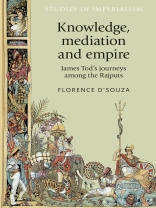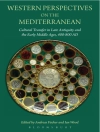This study of the British colonial administrator James Tod (1782–1835), who spent five years in north-western India (1818–22) collecting every conceivable type of material of historical or cultural interest on the Rajputs and the Gujaratis, gives special attention to his role as a mediator of knowledge about this little-known region of the British Empire in the early nineteenth century to British and European audiences. The book aims to illustrate that British officers did not spend all their time oppressing and inferiorising the indigenous peoples under their colonial authority, but also contributed to propagating cultural and scientific information about them, and that they did not react only negatively to the various types of human difference they encountered in the field.
Table des matières
Introduction
1. Tod as an observer of landscape in Rajasthan and Gujarat
2. Tod as anthropologist: trying to understand
3. Tod’s practice of science in India: voyages through empirical common sense
4. Tod’s use of romanticism in his textual constructions of Rajasthan and Gujarat
5. Tod’s romantic approach as opposed to James Mill’s utilitarian approach to British government in India
6. Tod’s knowledge exchanges with his contemporaries
Conclusion
Index
A propos de l’auteur
Florence D’Souza is Lecturer in Studies of the English-Speaking World at the University of Lille 3, France












